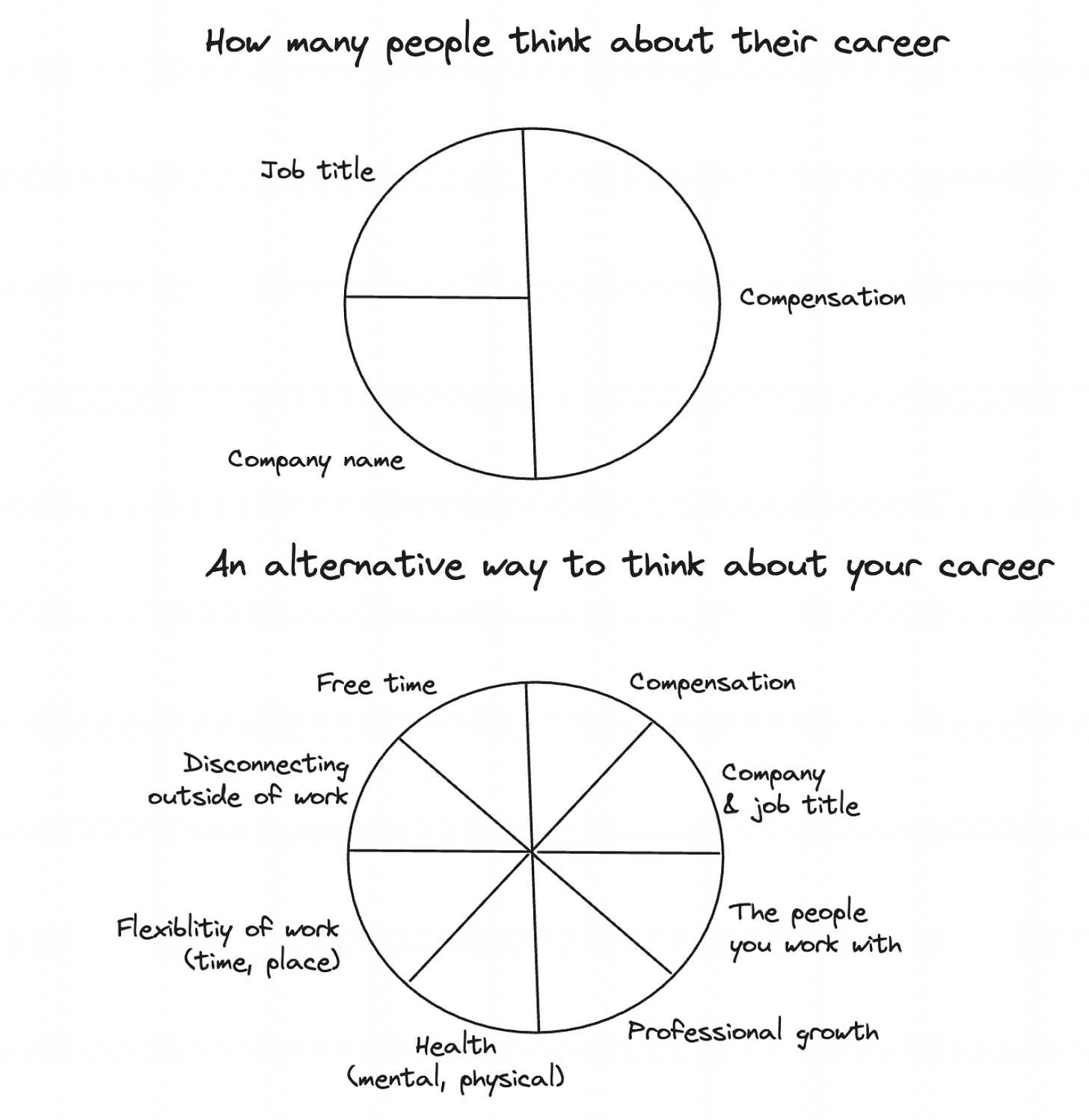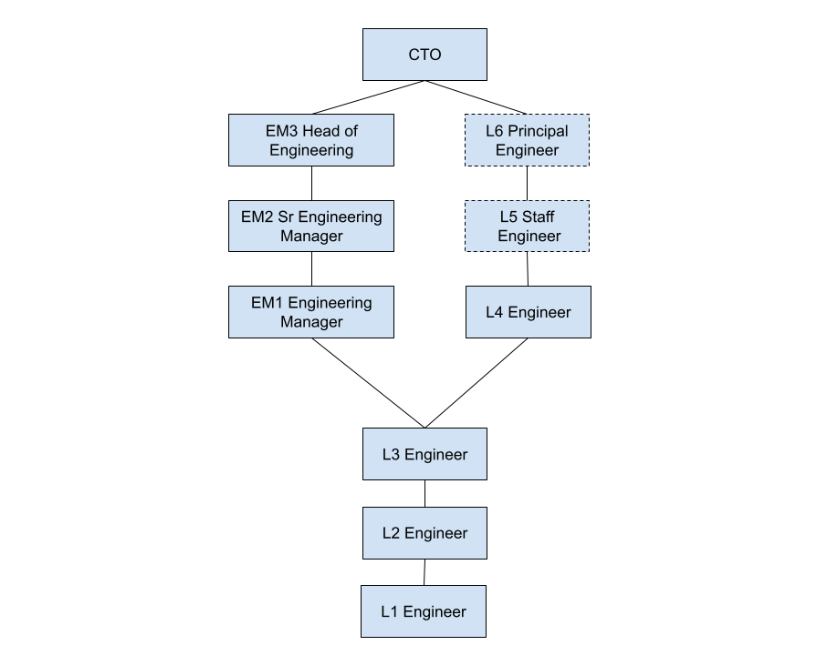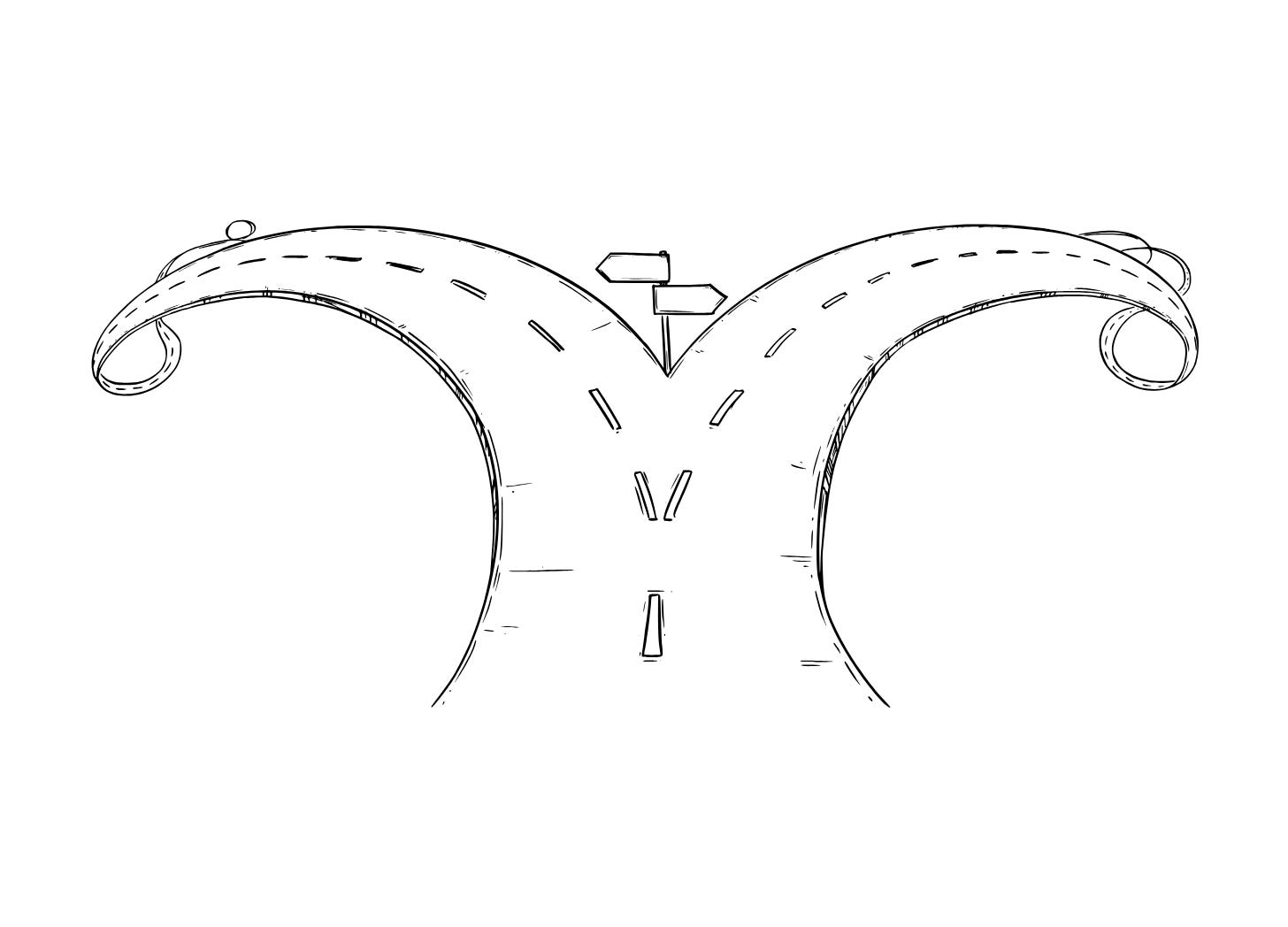The Three Myths That Keep Engineers Stuck
Outdated beliefs, hidden assumptions, and the quiet traps of career growth.
Engineers don’t get stuck because they lack skills. They get stuck—and stop progressing—because they’re following outdated assumptions about how their careers are supposed to work.
Maybe you're unconsciously climbing the ladder. Or perhaps you're waiting for someone to guide you and show you the next step.
It doesn’t really matter which script you’re following—what matters is recognizing how that script might be shaping your choices and your career.
And that is exactly my promise for this post: I want to help you uncover those stories so you can let them go and act from a place of itentionality and freedom.
If you want to build a meaningful and impactful career, the first step is to uncover the stories you’ve been following and telling yourself.
This new series of articles is all about what keeps engineers stuck from progressing and how they can take back control of their careers.
My promise is that by the end of this series, you’ll think differently about career progression—and more importantly, you’ll be able to take practical steps to regain control of your career.
The series will include at least two articles and a playbook designed to help you reflect and build a career that’s aligned with your interests.
In this first post, we’ll unpack the three most common myths about career progression—and how they quietly keep engineers stuck, disengaged, and unsure of what comes next.
And in Part 2, I’ll introduce a simple model called the Three Pillars of Career Design to help you reclaim agency and gain clarity. I’ll also share a sneak peek of the Career Design Playbook I’ve been working on over the last few weeks.
Without further ado, let’s dive in!
Myth #1: Someone Will Guide You
One day, an engineer told me, “I want to make progress.” It wasn’t the first time he’d said it, but this time, I decided to go deeper.
In a playful tone, I asked,
“What do you mean by progress? And how do you know you’re not already progressing?”
He paused. Two, maybe three seconds. Then he said quietly:
“I don’t know.”
That moment stuck with me because I’ve had many similar conversations with dozens of engineers.
Many engineers want to move forward, but they’re waiting for someone else to show them how.
Sometimes, they even put too many expectations on their managers, believing someone will say, “Here’s your next step.”
But here’s the truth:
That guide might never come.
And even if it does, you are the one who needs to define what progress means for you.
Waiting for someone to show you the path is among the most common and disempowering myths engineers fall into.
The sad truth is that no one can define what progress looks like for you. And if you don’t know what progress means, that’s okay. The reality is that it’s a difficult question to answer, and you shouldn’t expect to have everything figured out after one sitting thinking about it.
But you need to be aware that you’re the one who has to explore what matters. Ask yourself:
What does progress mean to you?
What energizes you?
What kind of work makes you proud, curious, or deeply satisfied?
You’re the one who gets to decide what kind of career you want to build.
Such questions shouldn’t be seen as a burden but as an invitation.
Stop outsourcing your growth and start owning it.
A Question for you 💡
What does progress mean to me beyond what others expect?
Myth #2: Promotions Are the Only Sign of Growth
If you’re not getting promoted, you must not be growing, right?
Deeply wrong—on so many levels.
This is one of the most dangerous ideas I’ve ever come across.
Growth doesn’t always look like a new title or position. Sometimes, it looks like:
Taking on new responsibilities
Deepening your technical craft
Becoming a better mentor, communicator, or teammate
Reclaiming your energy and creating healthier boundaries
Peace of mind
Free time
Getting clear on what you don’t want
Creating an impact that is aligned with your values and what you like
Promotions matter. But they’re not the only metric of growth.
If you only measure your career by the number of promotions you get or your title, you might miss the deeper, more meaningful shifts underneath the surface.
The real question isn’t: How do I get promoted?
It’s: How do I grow in a way that feels aligned, sustainable, and self-defined?
For instance,
in his book, The Software Engineer's Guidebook, offers an alternative way to think about your career.He claims your career is more than your title, company, or paycheck. It’s also about how you feel, how you work, what you learn, and who you become.
That’s the kind of growth worth pursuing.

A Question for you 💡
In what ways have I grown that don’t show up in a title?
Myth #3: Career Progression Is Linear
Most engineers grow up with a simple story in mind:
You work hard. You get better. You get promoted. Repeat.
Do you know who is partially guilty because of this? Career paths.
The problem with career paths is that they create the illusion that the higher you go, the better you are—which is not always true.
In general terms, most career paths in tech follow the structure depicted by Laura Pearce and Nikos Galifianakis in the following image:

I’ve worked with plenty of brilliant engineers who followed the ladder all the way up, only to arrive at a place where they felt empty. When they reached the Tech Lead or Engineering Manager role, they looked around and said:
“Is this it? Is this what I worked so hard for?”
They optimized to climb the ladder and forgot about what they value and what they enjoy.
Some engineers thrive in leadership, while others love deep technical focus. Some want to explore, while others want to stabilize. Some grow by doing more, while others grow by doing less, more intentionally.
Career progression isn’t linear. It’s deeply personal and non-linear, with seasons and detours. It also includes rest, realignment, experimentation, and even stepping sideways or back.
Don’t optimize to climb a ladder. Optimize to align your work with your values and with the contribution you want to make in the world.
A Question for you 💡
If growth didn’t mean “going up,” what would it look like for me right now?
How Are These Myths Influencing Your Career and Behaviour?
Let’s take a moment to recap:
Myth #1: Someone Will Guide You. You’re waiting for someone to show you the path.
Myth #2: Promotions Are the Only Sign of Growth. You assume that if you’re not moving up, you’re not growing.
Myth #3: Career Progression Is Linear. You believe the only way forward is up.
Pause for a moment and think on this question:
If I could break free from these myths, how would I want my career to look?
Final Thoughts
If any of these myths felt uncomfortably true, that’s okay.
All of us have fallen into the trap of following some kind of version of these myths.
The good news is that once you see the myths, you can begin to let them go.
No one can define what progress means for you, except you.
Growth is all about aligning your career with the life you want to live.
You don’t have to keep climbing a ladder that leads to a role you don’t want.
When you understand this, you can start designing a career that feels aligned, intentional, and self-defined.
In Part 2 of this series, I’ll introduce the Three Pillars of Career Design, a framework that helps you reflect on where you are, where you want to go, and how to make choices that truly are aligned with what you want.
I’ll also give you a sneak peek at the Career Design Playbook, a tool I’ve been working on to help engineers like you move forward with clarity and confidence.
Thanks for sticking to the end—see you in Part 2.
A Note From the Author
The Utopian Engineering Society is an independent, free newsletter. If you enjoyed this piece, please consider making a one-time donation or sharing it with an additional friend.
You can donate via Paypal by clicking in this link.
I appreciate your support 🙏. My aim is to reach as many engineers as possible, helping them advance in their careers faster, become wiser, and live happier lives.
I believe wise engineers hold the power to drive meaningful change in our society. Please help me to spread the message :)


